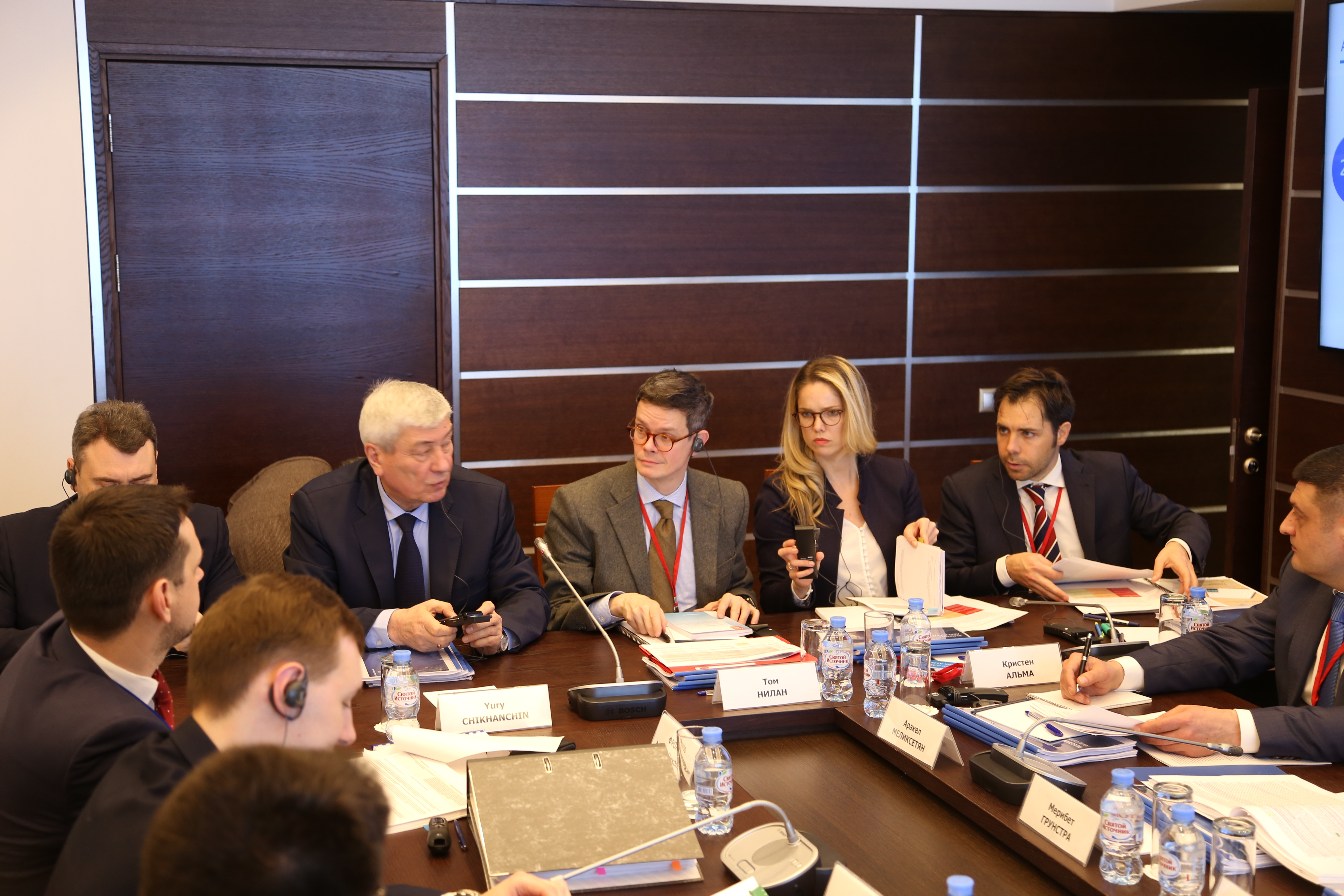-

11 March, 2019
The three-week on-site visit by the FATF assessors began on March 11, 2019. The assessment team is led by Thomas Nilan of the FATF Secretariat.
The official presentation of the assessment team took place at Rosfinmonitoring during a meeting of the Interagency Committee to Prepare Russia for the FATF 4th Round of Mutual Evaluation.
According to Rosfinmonitoring Director Yury Chikhanchin, the assessors will evaluate the Russian AML/CFT system not only in terms of its compliance with international standards, but also from the standpoint of effectiveness.
In his overview of the assessment process, T. Nilan clarified the modalities of interaction with Russian government bodies and representatives of the private sector.
"Our team is highly diverse, which, hopefully, will enable us to understand all aspects, including the practical side, of the Russian AML/CFT system," said T. Nilan. "We held in-depth discussions on technical compliance [compliance of the country's legal framework with the FATF standards], and now our job is to understand how it works in practice."
The findings of the evaluation of the Russian AML/CFT system will be summarized at the FATF Plenary meeting in Paris next October.
The on-site visit will last until March 29. Besides Moscow, assessors are expected to visit the Northwestern and Volga Federal Districts of Russia.
Background:
In 2018, Russia entered the active phase of the FATF evaluation, which will last until October 2019.Russia had used the preceding years to put in place an effective institutional framework for cooperation between the AML/CFT participants from among government agencies and the private sector. As part of the systemic efforts to improve the effectiveness of the country's AML/CFT regime in terms of 11 Immediate Outcomes, Rosfinmonitoring has been working closely with other agencies. To this end, in line with the FATF methodology, the Russian National Security Program was amended in 2017 to include such tasks as improving technical compliance with the FATF standards and the effectiveness of the national AML/CFT efforts in terms of each of these Immediate Outcomes.
IO 1: Money laundering and terrorist financing risks are understood and, where appropriate, actions coordinated domestically to combat money laundering and the financing of terrorism and proliferation.
IO 2: International cooperation delivers appropriate information, financial intelligence, and evidence, and facilitates action against criminals and their assets.
IO 3: Supervisors appropriately supervise, monitor and regulate financial institutions and DNFBPs for compliance with AML/CFT requirements commensurate with their risks.
IO 4: Financial institutions and DNFBPs adequately apply AML/CFT preventive measures commensurate with their risks, and report suspicious transactions.
IO 5: Legal persons and arrangements are prevented from misuse for money laundering or terrorist financing, and information on their beneficial ownership is available to competent authorities without impediments.
IO 6: Financial intelligence and all other relevant information are appropriately used by competent authorities for money laundering and terrorist financing investigations.
IO 7: Money laundering offences and activities are investigated and offenders are prosecuted and subject to effective, proportionate and dissuasive sanctions.
IO 8: Proceeds and instrumentalities of crime are confiscated.
IO 9: Terrorist financing offences and activities are investigated and persons who finance terrorism are prosecuted and subject to effective, proportionate and dissuasive sanctions.
IO 10: Terrorists, terrorist organisations and terrorist financiers are prevented from raising, moving and using funds, and from abusing the NPO sector.
IO 11: Persons and entities involved in the proliferation of weapons of mass destruction are prevented from raising, moving and using funds, consistent with the relevant UNSCRs.

 Login to your account
Login to your account Eng
Eng Рус
Рус